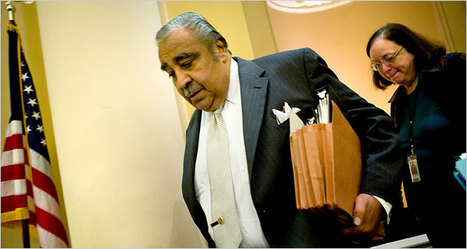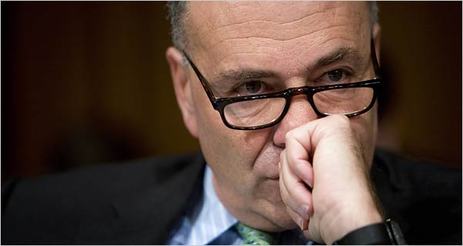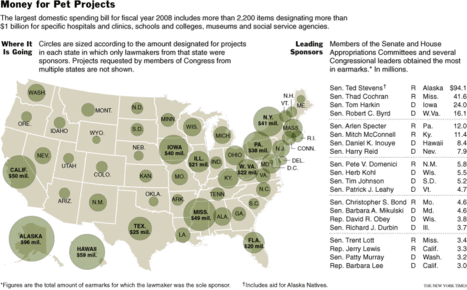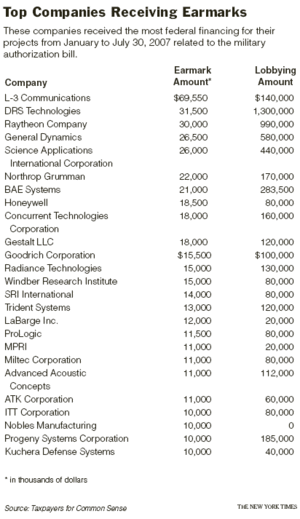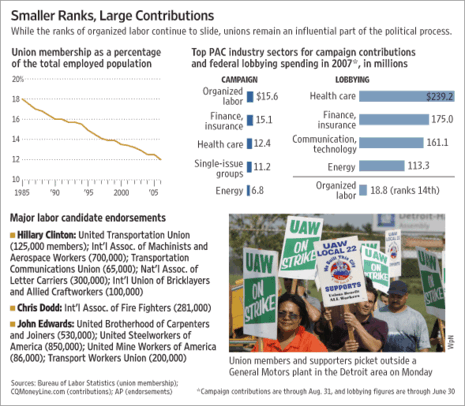(p. A17) WASHINGTON — Americans are in sticker-shock over grocery prices, while people in developing countries are rioting over food shortages. And across the heartland, American farmers are enjoying record incomes, but losing sleep over rising expenses and turbulence in the commodity futures markets.
Here on Capitol Hill, though, it is pretty much farm politics as usual.
As Congress works toward final passage of the farm bill, it is poised to continue most of the existing farmer subsidy programs, including about $5.2 billion a year in so-called “direct payments” that will be disbursed even as net farm income is projected to hit a historic high in 2008.
The farm bill, which comes along once every five years and will cost upward of $300 billion, in fact will do little to address many of the most pressing concerns. It will not change biofuel mandates that are directing more corn to ethanol and contributing to a global rise in food prices.
. . .
But even strong proponents of the bill, like Senator Tom Harkin, Democrat of Iowa and chairman of the Agriculture Committee, concede that farm interests are deeply entrenched and that there is little appetite for change among many farm state lawmakers, especially when it comes to the direct payment program.
The direct payments are based on the amount of land that certain farmers own, and Mr. Harkin, who has sought to eliminate the payments, said that many recipients of the money then use it to acquire more land and qualify for more payments.
“It’s like the black hole in space that astronomers talk about: everything gets sucked in and nothing ever comes out,” he said. “This is the black hole of agriculture. It doesn’t make sense, but farmers continue to get it.”
Mr. Harkin said there was not much he could do because “I don’t have the votes,” adding, “People love free money.”
For the full commentary, see:
DAVID M. HERSZENHORN. “NEWS ANALYSIS; Farmers’ Income Rises, as Do Food Prices, but It’s Mostly Politics as Usual.” The New York Times (Thurs., April 24, 2008): A17.
(Note: ellipsis added.)


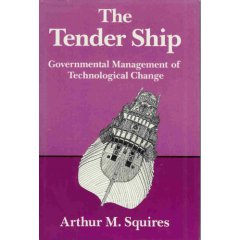 Source of book image:
Source of book image: 